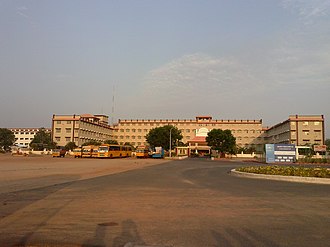BE Biomedical Engineering is a four-year-long undergraduate program that deals with the application of engineering principles and problem-solving methodologies to biology and medicine. Biomedical Engineering aims to advance human health and healthcare at all levels. Bachelor of Engineering in Biomedical Engineering offers candidates to set up a career in various areas of Academic Institutions, Government Organizations, Medical Organizations, Pharmaceuticals, Clinics, Hospitals, Manufacturers, Diagnostic, Labs, Space, Installation Units, etc.
During the BE Biomedical Engineering course, students are given a basic understanding of the application of engineering ideas and design concepts to Medicine and Biology for healthcare reasons known as Biomedical Engineering. The course falls under the umbrella of BE Course
According to Wikipedia, “BE Biomedical Engineering is the undergraduate degree in Engineering awarded by universities and conservatories. The course combines the study of Biomedical Engineering commonly associated with the modern engineering design process and biological concepts, which have an impact on human health. Bachelor of Engineering in Biomedical Engineering course is the application of engineering ideas and methodologies to medical and biological challenges.
|
Semester I |
Semester II |
|
Engineering Mathematics-I |
Engineering Mathematics- II |
|
Engineering Physics |
Fundamentals Of Material Science |
|
Engineering Chemistry |
Environment Science And Surroundings |
|
Fundamentals Of Civil And Mechanical Engineering |
Fundamentals Of Electrical And Electronics Engineering |
|
Manufacturing Mechanics |
Basic Thermodynamics |
|
English |
Computer Programming Languages |
|
Practical Lab Session |
Practical Lab Session |
|
Semester III |
Semester IV |
|
Engineering Mathematics-III |
Engineering Mathematics-IV |
|
Fundamentals Of Electric Circuits And Analysis |
Practical In Electronic Circuits And Analysis |
|
Basics Of Electronic Devices And Circuits |
Introduction To Human Anatomy And Physiology |
|
Introduction To Switching Theory And Logical Design |
Fundamentals To Electrical And Electronic Instruments |
|
Computer Programming |
Dynamics Of Biofluids |
|
Strength Of Materials |
Engineering And Medical Instrumentation-I |
|
Practical Lab Session |
Practical Lab Session |
|
Semester V |
Semester VI |
|
Control System And Engineering |
Embedded Systems In Medicine |
|
Introduction To Microprocessor And Its Applications |
Principles Of Diagnostic And Therapeutic Equipment |
|
Fundamentals To Integrated Circuits |
Medical Informatics And Expert Systems |
|
Signals And Systems Engineering |
Basics Of Digital Image Processing |
|
Introduction To Biomechanics |
Introduction To Biomedical Signal Processing |
|
Engineering And Medical Instrumentation-II |
Optional Subject I |
|
Practical Lab Session |
Practical Lab Session |
|
Semester VII |
Semester VIII |
|
Introduction To Radiological Equipment |
Advanced Biomedical Engineering And Instrumentation |
|
Engineering And Biomaterials |
Engineering Economics And Sociology |
|
Hospital Safety, Guidelines, And Management |
Introduction To Bio-Telemetry And Analysis |
|
Optional Subject II |
Optional Subject IV |
|
Optional Subject III |
Optional Subject V |
|
Practical Lab Session |
Practical Lab Session |


Student Review About Course